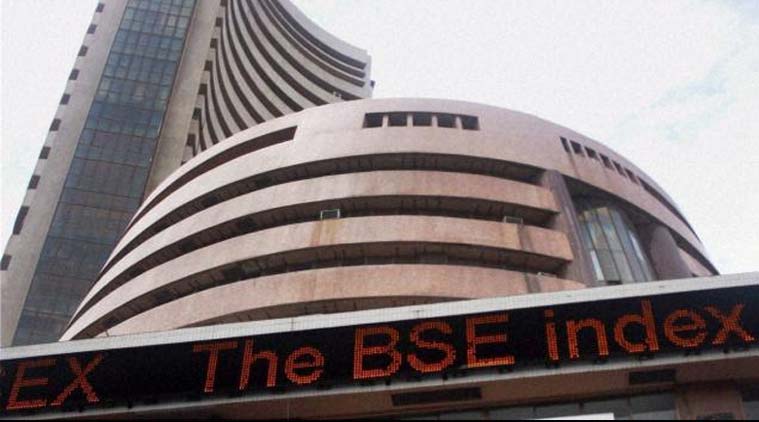Sensex crashes 551 points on strict P-notes norms, Nifty cracks 8,400
The benchmark BSE Sensex ended 551 points and the NSE Nifty closed at 8361 on Monday amid concerns over stricter norms for participatory notes and slump in Chinese stock market.
 The BSE Sensex closed 550.93 points down at 27,561.38. The NSE Nifty ended 160.55 points down at 8,361.00. (PTI)
The BSE Sensex closed 550.93 points down at 27,561.38. The NSE Nifty ended 160.55 points down at 8,361.00. (PTI)
Nervous investors unloaded stocks on Monday, sending the benchmark Sensex tumbling by 551 points as a sell-off in Chinese stock markets and fears that tougher norms for participatory notes (P-notes) may hit foreign investments.
The market sentiment got a jolt after a special investigation team (SIT) appointed by the Supreme Court on Friday asked the Securities and Exchange Board of India (Sebi) for identification of beneficiaries of P-notes issued by foreign institutional investors (FIIs). Foreign fund flows through P-notes had hit the seven-year high in May this year and remained close to that level in June.
Even as the market tanked despite finance minister Arun Jaitley ruling out any knee-jerk action, experts warned against putting curbs on P-notes. “A P-note extends the reach of Indian securities to persons otherwise not eligible to invest in such securities. By introducing multiple checks and balances, and forcing compliance down the throat of persons who otherwise undertake no legal compliance in India, it may discourage legitimate global investors from investing in Indian securities through such structures,” said Kaushik Mukherjee, partner at law firm J Sagar Associates.
[related-post]
Mukherjee said the foreign investment firm issuing P-notes is under regulatory scrutiny, and KYC requirements for the beneficial holders have already been prescribed to FIIs/FPIs. “Additionally, Sebi has already prohibited the issuance of P-notes by way of opaque structures. In all, I am of the view that there may be enough there already by way of regulation. As far as multi layered structures are concerned, an Indian regulator’s extraterritorial jurisdiction in relation to regulating such transactions is questionable,” said Mukherjee.
“The P-notes issue will not have a huge bearing on foreign investors. Currently, there are adequate norms in place to know the final beneficial ownership of P-notes. Most of the investors opt for P-notes for convenience, in the absence of clarity on taxation involving FIIs,” said UR Bhat, director at Dalton Capital Advisors (India) Pvt Ltd.
Investments through P-notes had hit the 7-year high of Rs 284,826 crore in May, but declined marginally to Rs 275,436 crore — which accounts for 11.5 per cent of total FII investments. Though the previous high was Rs 258,748 crore in April 2008, it had declined to just Rs 60,948 crore in February 2009, according to the Sebi data. When FIIs started using the opaque P-Note route and invested a whopping Rs 449,613 crore in October 2007 (almost half of the total FII investment), Sebi stepped in and tightened the rules.
Registered FIIs which handle P-notes on behalf of their foreign clients do not disclose their client details to Sebi, unless asked specifically by the regulator. Foreign investors who invest through P-notes can remain anonymous, they don’t need to register with Sebi. Government agencies fell that part of P-notes investment could be round-tripping of funds — black money which has gone out of the country through various channels coming to the Indian stock market to make it white. “P-notes, mostly used by overseas HNIs (high networth individuals), hedge funds and other foreign institutions, allow such investors to invest in Indian markets through registered FIIs. This saves time and costs for investors, but the flip side is that the route can also be used for round tripping of black money,” said a market source.
Meanwhile, Asian markets were left floundering after a 8 per cent sell-off in Shanghai on worries on Chinese economy.
Photos


Sep 23: Latest News
- 01
- 02
- 03
- 04
- 05





























